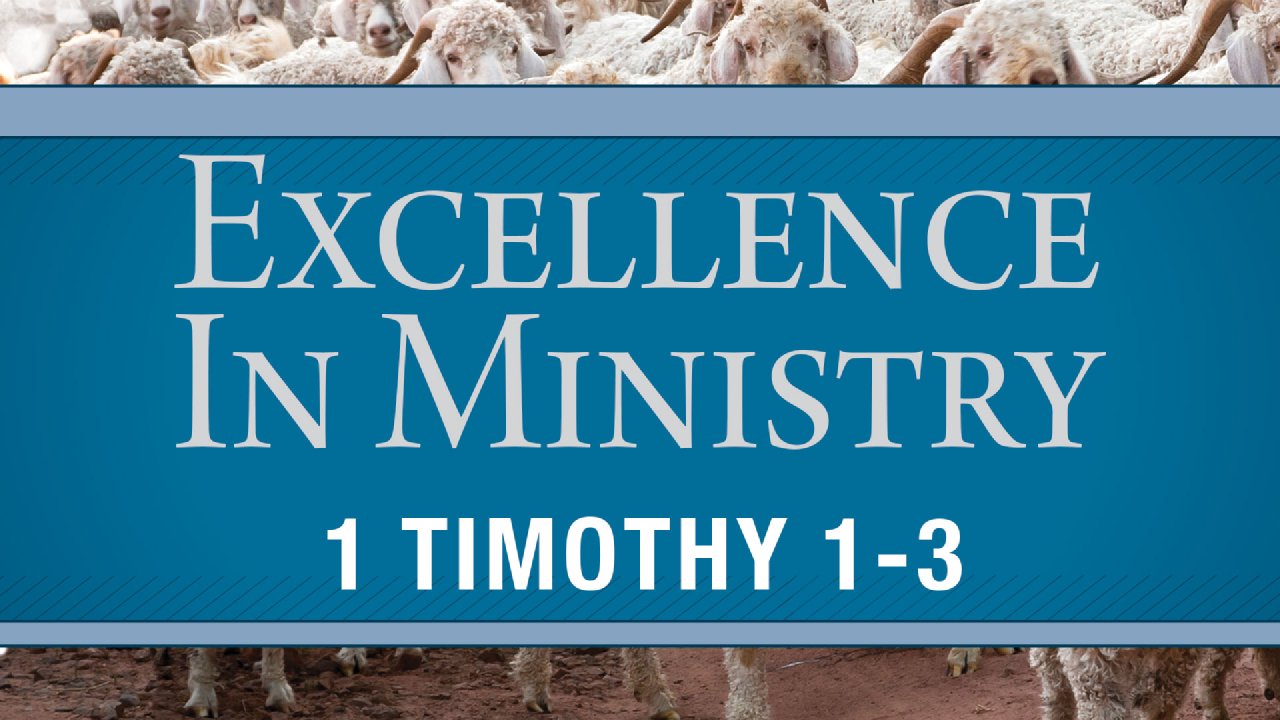You can't escape it: a Christian's conduct matters . . . greatly. Christ's reputation is on the line, and nonbelievers are watching. This makes God's “gamble” seem crazy—that sinful, Spirit-filled people are called to lead His church. Is it any wonder then that He decrees that His leaders be above reproach? Not at all. In lesson 7 we looked at the first two verses of 1 Timothy 3 and seven character qualities every overseer must demonstrate. In this lesson, we'll explore verses 3-7 and seven more character traits. Under the inspiration of the Holy Spirit, Paul continued to set forth in plain, uncomplicated language the non-adjustable, non-alterable essentials of God's standard for church leadership.

Another Look at the Checklist
Message 8
Pastor Chuck Swindoll • 1 Timothy 3:3–7
The Church as God Planned It
Pastor Chuck Swindoll
Shortly before his death, Paul wrote three letters on the subject of the local church—specifically on pastoral responsibilities within the church. These letters are 1 Timothy (written in AD 63), Titus (AD 63), and 2 Timothy (AD 67). The Pastoral Epistles, as they are commonly called, provide believers with the earliest and most reliable guidelines for the local church. They dictate the way issues in the church should be handled, the philosophy that should be embraced within the church, and the manner in which the church should be led. Over the centuries, human tradition has often outshouted biblical principles and caused the church to get off course, which has resulted in every conceivable extreme in teaching and in doctrine, including heresy. In this expositional study of 1 Timothy, we return to the source—the Bible—and discover afresh how God planned the church to function.
What's a Pastor to Do?
Pastor Chuck Swindoll
First Timothy, the flagship of Paul's “pastoral” letters, defines the role of the pastor and the function of the church. Our goal is to learn from this first-century epistle about some of the concerns and pitfalls of ministry and apply God's instructions to the twenty-first-century church. This study offers insight on the theology of ministry based on biblical guidelines—as opposed to human experience, opinion, prejudice, culture, or personal preference. Let's keep a keen eye on what is written in God's Word and then do our best to let it shape our thinking.
Undeserved Mercy for an Unbelieving Rabbi
Pastor Chuck Swindoll • 1 Timothy 1:12–17
One of the benefits of studying a New Testament letter is the opportunity to become better acquainted with the writer himself—in this case, Paul the apostle. In this brief vignette (a mere six verses), we don't read of Paul's role and ministry as an apostle—strong in faith and unswerving in dedication. Rather, we read of Paul—called Saul—before his conversion to Christ. Saul was “a blasphemer and a persecutor and a violent aggressor” who, by his own admission, “acted ignorantly in unbelief ” (1 Timothy 1:13). Ironically, Saul was a religious zealot, an intense rabbi, sincere to the core . . . but sincerely wrong. And so? Mercy came to the rescue!




